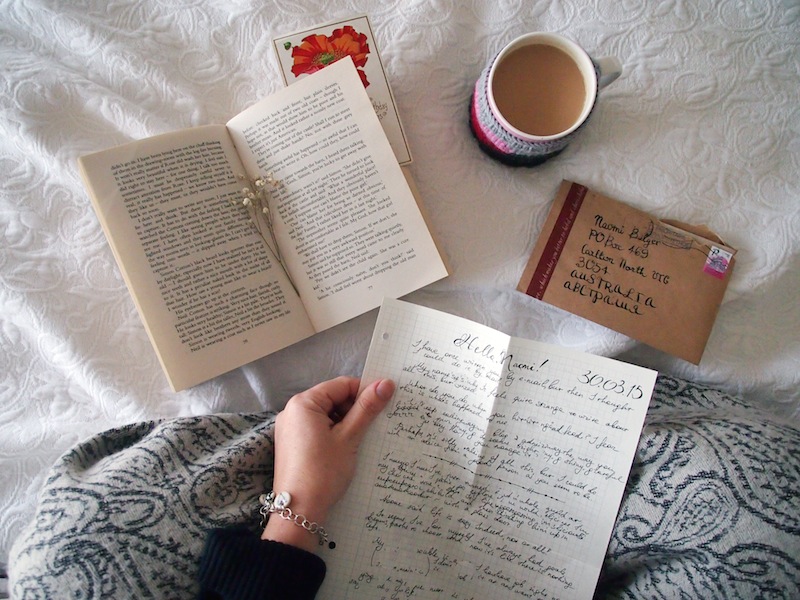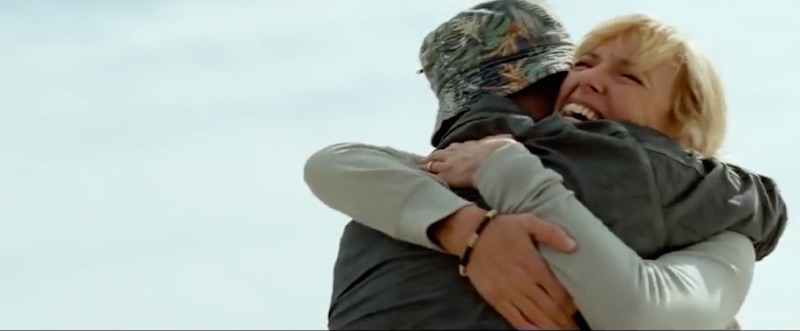
JOURNAL
documenting
&
discovering joyful things
Why you should send thank-you notes and keep a gratitude journal
 Did you know that regularly writing down your gratitude can make you a happier and healthier person, and make you more likely to exercise more, sleep better, and exercise kindness towards others?
Did you know that regularly writing down your gratitude can make you a happier and healthier person, and make you more likely to exercise more, sleep better, and exercise kindness towards others?
Woah! I mean few of us would argue that gratitude is a more beneficial emotion than the lack of gratitude, but this takes things to a whole new level. A scientific level, if you will, because I'm quoting the findings of Robert A Emmons and Michael E McCullough, published in the Journal of Personality and Social Psychology (vol.84, no.2).
Their study, called "Counting Blessings Versus Burdens: An Experimental Investigation of Gratitude and Subjective Well-Being in Daily Life" is a fascinating read.
Essentially Emmons and McCullough conducted three separate studies on "gratitude," randomly dividing the groups of people in each study into a further three different "conditions." They then asked them to a) document their feelings or experiences relating to these conditions, and b) provide some general "wellbeing rating" information about their health, exercise, sleep, moods etc. Depending on the study, they recorded this information on either a daily or weekly basis.
Instructions for the "gratitude condition" group in each of the three studies were the same:
"There are many things in our lives, both large and small, that we might be grateful about. Think back over the past [week / day] and write down on the lines below up to five things in your life that you are grateful or thankful for."
And it seems from the results that the recording of gratitude, the forced mindfulness and physicality of writing it down, can have a profound impact on both health and happiness.
(What I like to think about is that as the participants were divided randomly, it is likely that the existence of "things to be grateful for" was more-or-less equal among all participants. And yet these wonderfully positive findings were significantly more pronounced only in the groups that were instructed to write their gratitude down.)
So in Study 1, involving weekly reporting over 10 weeks, the "gratitude group" experienced fewer symptoms of physical illness, and spent a lot more time exercising. The emotions they experienced in response to someone helping them or giving them aid were associated with significantly higher ratings of joy and happiness.
"Participants in the gratitude condition felt better about their lives as a whole, and were more optimistic regarding their expectations for the upcoming week. They reported fewer physical complaints and reported spending significantly more time exercising," the report found.
And that's just from writing down your gratitude, folks!
In Study 2, while the health benefits were not as pronounced as in Study 1 (something the authors posited could have to do with the much shorter timeframe of the study - 13 days instead of 10 weeks), the people in the "gratitude condition" seemed to become kinder. People who had been asked to record their gratitude were "more likely to report having helped someone with a personal problem or offered emotional support to other."
Finally in Study 3, in which the participants were all adults with neuromuscular diseases, the findings of the previous two studies held firm. "It appeared that the gratitude condition not only fostered daily positive affect, but also, reduced daily negative affect," the authors found. "Participants in the gratitude condition reported considerably more satisfaction with their lives as a whole, felt more optimism about the coming week, and felt more connected with others."
Even "observer participants," people who were close to and living with the main participants, reported noticing a higher life satisfaction in those who had been recording their gratitude.
So here is my conclusion. Get out your pen and paper, and write down the things that make you grateful. Big or small, significant or insignificant. Do this every day, at the end of each day. "What made me grateful today."
It will make you happier, more optimistic, healthier, and more considerate.
And even better: if there is another person on that list, someone whose words or actions were the reason you felt grateful, write your thank-you to them, instead of in your journal. Why not put your gratitude to use, by spreading kindness to others?
ps. While we're in the mood for saying thank-you, don't forget that there are free postcard downloads to say thank-you to your postie for delivering your mail (rain, hail, snow or heatwave) here
ps2. Here is a link to the Emmons and McCullough article if you want to read the full report
The happiness of the pursuit
"We should concern ourselves not so much with the pursuit of happiness, but with the happiness of the pursuit."
Once upon a time, before there were podcasts, I was going to create a podcast. It was to be an exploration of "how we celebrate." I was going to travel the world, for one year, and observe and take part in celebrations, big and small, personal and public: mardi gras and backyard weddings, New Year's Eve in Times Square and a christening in Addis Ababa.
Back then I worked as a radio reporter, so I did a deal with one of the syndicates we broadcast to. I would pre-record five minutes of "celebration stories" every week, play the recording to them over the phone (yes!), and they would then broadcast them to their 30 or so radio stations around Australia.
I don't think blogs had been invented in those days, and there certainly wasn't any YouTube or social media, so the visual component of my journey was to come later, in what I hoped would be a beautiful and inspirational book.
That would have been a good book, don't you think? How we celebrate.
Anyway the journey didn't happen because a misadventure in renting with flatmates unexpectedly required all my savings (which admittedly was only enough for my flights and not much more), and the whole idea kind of sank. Maybe one day, when the kids are grown up and I'm retired...
I was reminded of this whole non-journey recently when I watched a lovely, thoughtful little comedy called "Hector and the Search for Happiness." Have you seen it?
Essentially, Hector is a psychiatrist who gets fed up listening to and failing to fix his clients' first world problems. Which is kind of a first world problem in itself, really. He can't make them happy. He can't make himself happy, either.
So Hector channels his inner Tin Tin and embarks on a global adventure to find out what makes people happy. To everyone he meets, he asks, "Are you happy? What makes you happy?"
At one point in the story, he is hooked up to a machine that colour-codes the emotions he is experiencing. Yellow for happiness, blue for sadness, and acid-green for fear ("because fear eats away at you"). Something happens (I don't want to give it away) and Hector begins experiencing all of these emotions, and more, at once, and his brain glows like a rainbow. "It's an aurora borealis of the brain!" the observing scientist says.
Hector's emotions, when experienced all together, are beautiful.
How are you, dear friend? Are you happy? What makes you happy?
Images are screen grabs from the movie, taken by me. Here's the official trailer, if you're interested.







